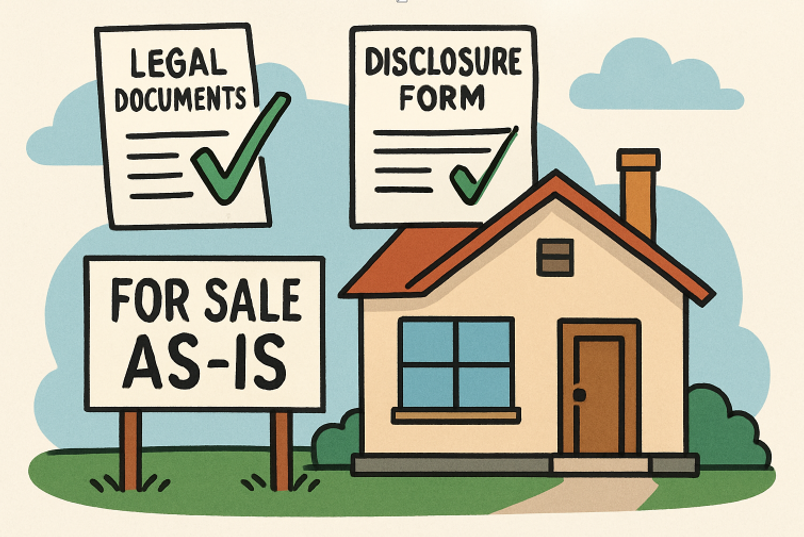Legal Considerations When Selling a Property As-Is
Understanding ‘As-Is’ Sales
In real estate, selling a property “as-is” means the seller offers it in its current state, without any obligation to make repairs or upgrades before closing. This approach often appeals to those who prefer a swift transaction, such as homeowners facing financial or time constraints. For sellers interested in a fast close, as-is sales can provide an efficient pathway, minimizing delays caused by lengthy repair negotiations.
However, an as-is sale does not mean the seller’s hands are totally free of responsibility. Legal requirements persist, particularly around the duty to disclose any known problems impacting the property’s value or safety. Even as-is transactions are governed by laws designed to protect both parties and promote transparency.
Disclosure Obligations
Mandatory disclosure rules still bind sellers in as-is transactions. These rules exist nationwide, although they can vary significantly by state. For example, property owners in Illinois are legally required to share known issues such as leaks or structural defects with potential buyers. The intent behind these regulations is to ensure an honest exchange. Omitting relevant facts to hasten a deal can land sellers in hot water, exposing them to lawsuits or financial penalties. As a result, full transparency remains key—regardless of the sales method.
For those looking for the best buyers in Vancouver, WA, working with experienced local buyers helps ensure both compliance and speed during the selling process.
Common Misconceptions
“As-Is” Means No Liability
One widespread misconception is that selling a home as-is completely releases the seller from any responsibility. In reality, sellers remain accountable for revealing issues they are aware of. Sellers face substantial legal exposure if a hidden defect later surfaces and can be traced back to willful nondisclosure.
Buyers Have No Recourse
Another myth is that buyers cannot push back after an as-is purchase. In truth, if a court determines the buyer was misled or key problems were concealed, they may be entitled to compensation.
Buyer’s Right to Inspect
An integral part of any home sale—even those conducted as-is—is the buyer’s right to inspect. Buyers are strongly encouraged to obtain an independent property inspection. If major problems are uncovered, the buyer may renegotiate the deal, request a price adjustment, or even walk away. This inspection process drives an honest and fair deal—both parties benefit from knowing exactly what is being exchanged.
Legal Protections for Sellers
To minimize potential legal pitfalls, sellers should take several proactive steps:
- Complete all legally required property disclosures, even if defects are minor.
- Use clear, specific language in the purchase contract to highlight the as-is status and outline which responsibilities the seller does and does not assume.
- Partner with a real estate attorney who can review local law, assist with paperwork, and ensure compliance at every step.
Obtaining legal counsel for as-is sales isn’t just a best practice—it’s often essential in navigating the nuances that can arise with property law.
See also: Why Real Estate Agents Need a Modern Marketing Strategy
Potential Legal Consequences
Sellers who neglect their disclosure duties or attempt to conceal property defects may find themselves subject to lawsuits, including claims of fraud, misrepresentation, or breach of contract. Litigation can force sellers to pay for damages, undo the sales transaction, or return the property. Furthermore, unresolved legal disputes can cause reputational harm and future difficulties in buying or selling real estate. Proper preparation and transparency serve as the strongest defense against these risks.
Final Thoughts
Selling a property as-is can be a practical solution for many homeowners, especially those needing a quick sale or lacking repair resources. However, it’s essential to recognize that as-is sales don’t remove all legal responsibilities. Comprehensive disclosure, understanding state-specific laws, and seeking professional legal guidance are key strategies for protecting yourself and achieving a smooth, stress-free closing.






